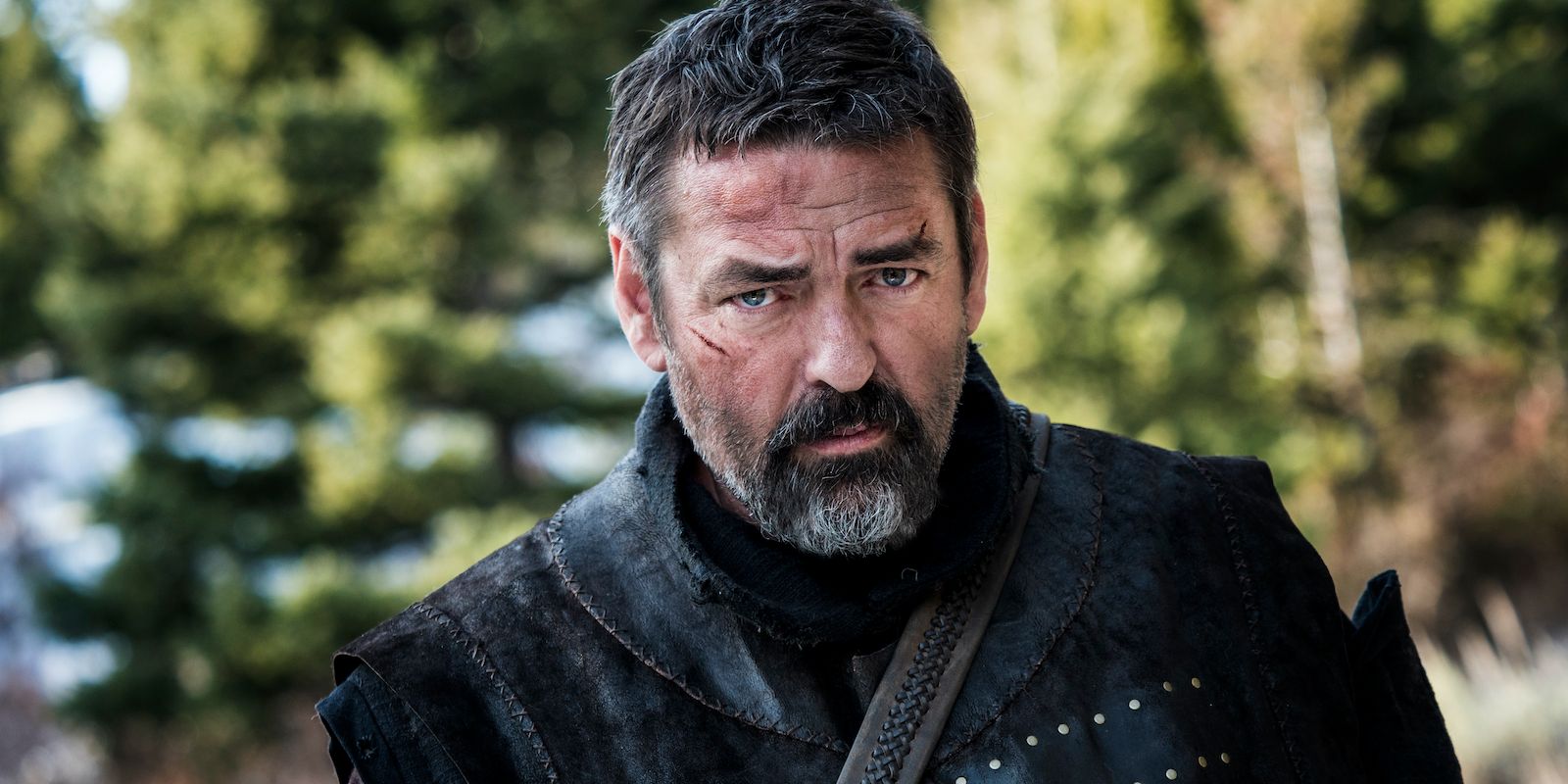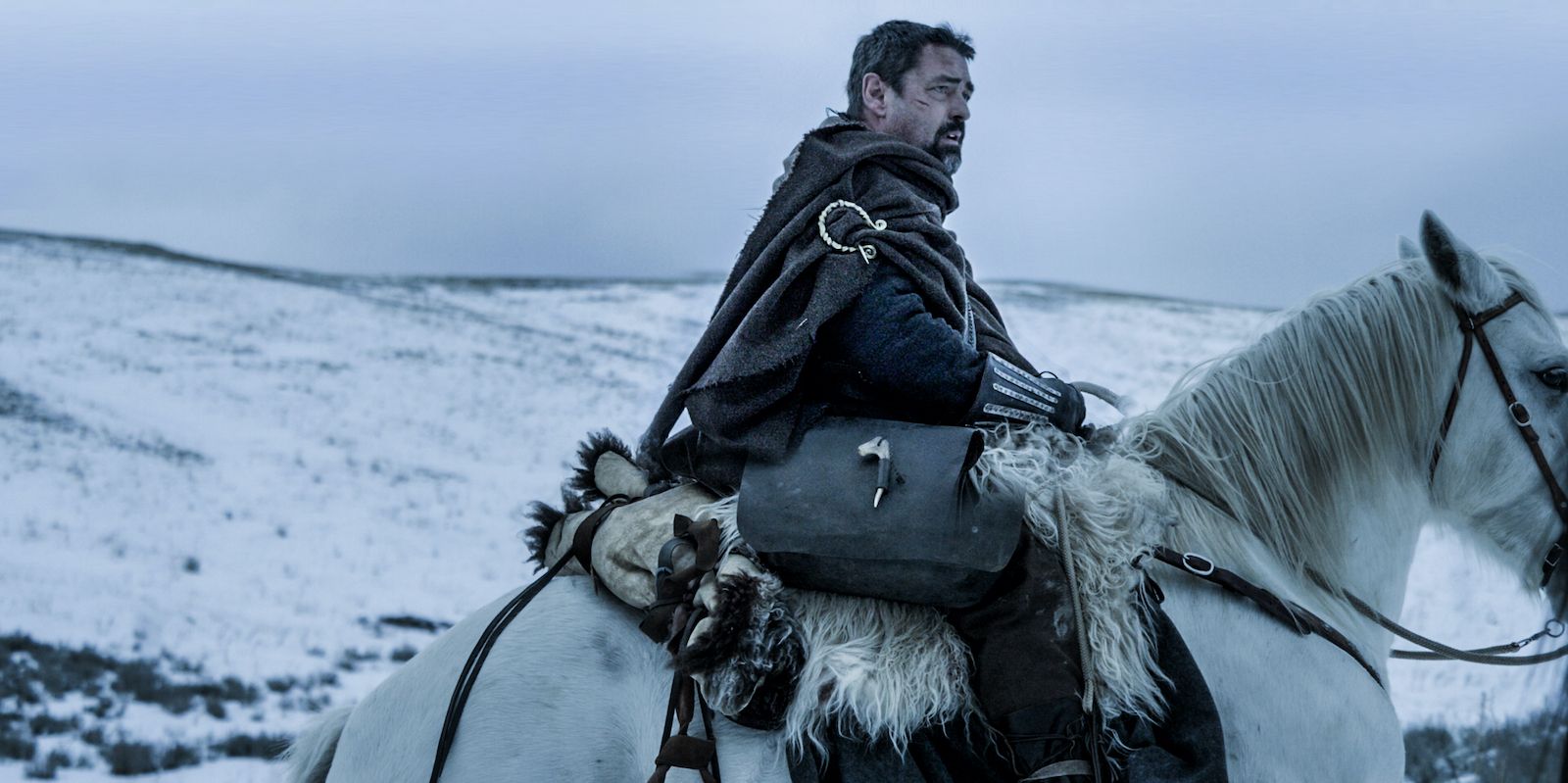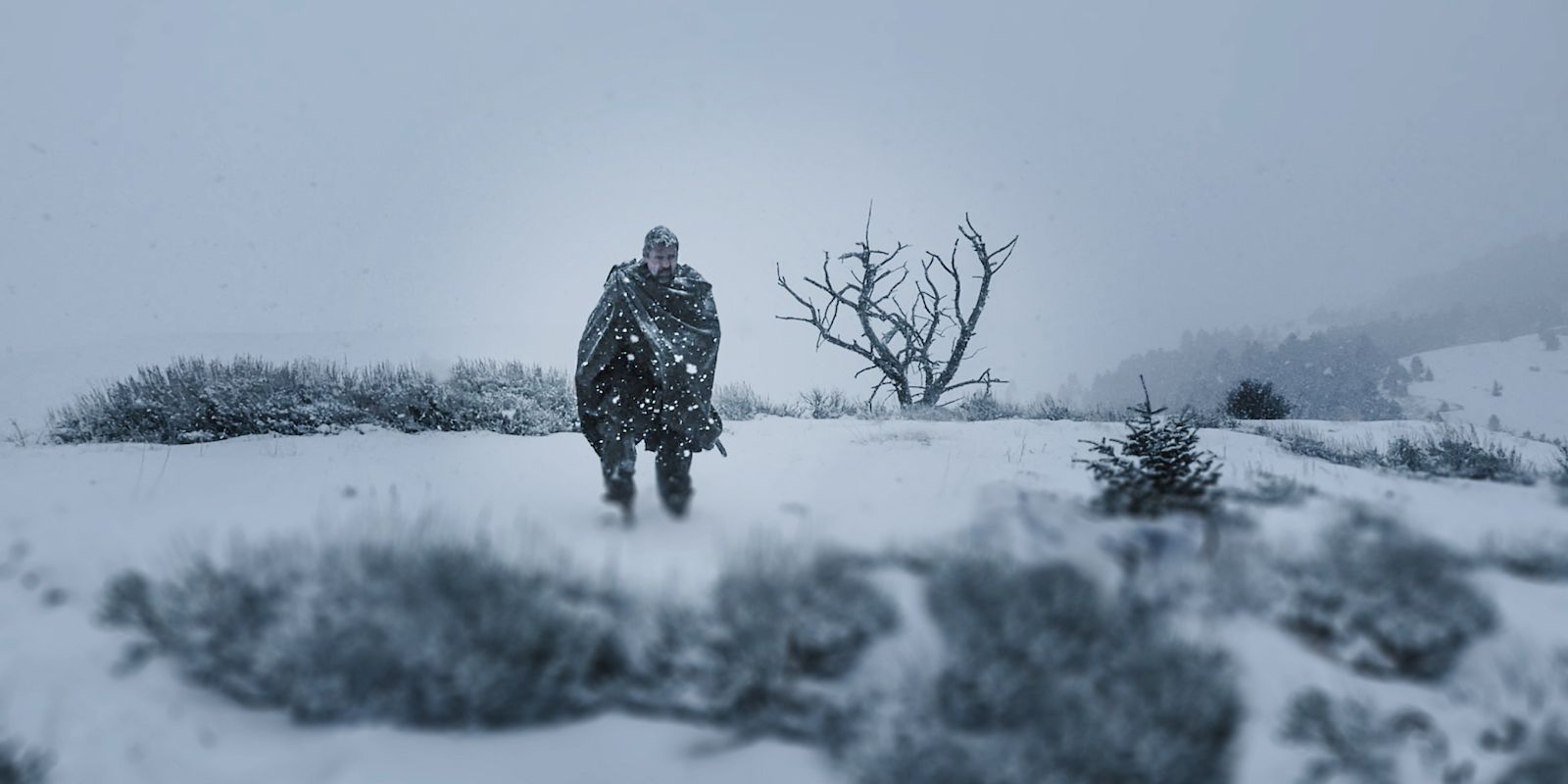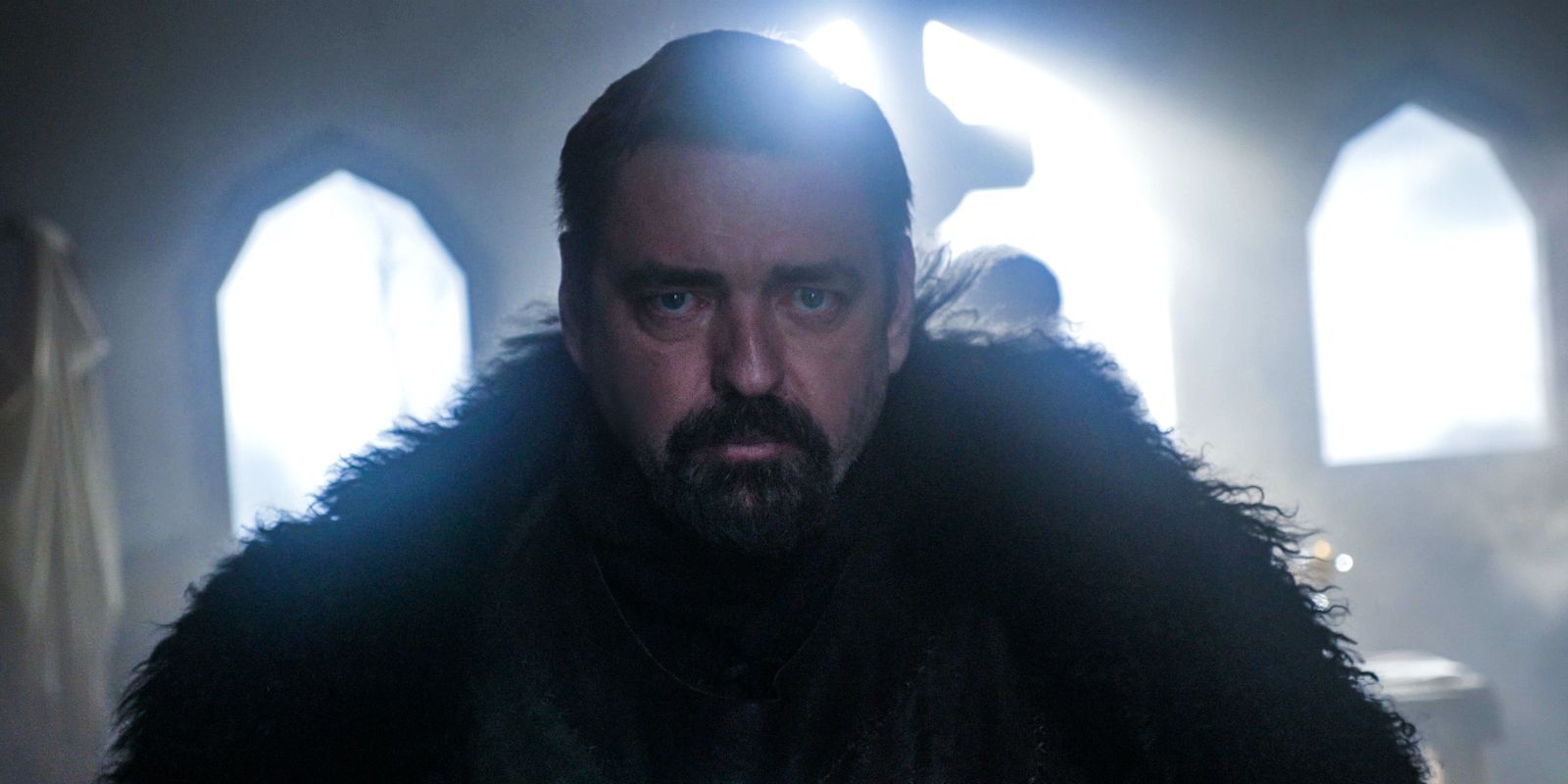It's been 25 years since Angus Macfadyen first made his mark playing Robert the Bruce in 1995's Braveheart. Now, he's reprising the role in the follow-up, Robert the Bruce, which was just released on VOD. The movie, which Macfadyen also co-wrote, continues the story of the quest for Scottish independence by focusing on a time in the King's life when hope for gaining his country's freedom seemed to be lost, and how he renewed his faith in the cause and resumed the fight. It's a more personal story than Braveheart, and Macfadyen brings gravity and depth to the title character.
In an exclusive interview, Macfadyen spoke to CBR about returning to Robert the Bruce, why he chose to focus the movie on this particular period in the Scottish King's life, and the challenging process of making the film.
CBR: Why did you decide to revisit the character of Robert the Bruce after all this time?
Angus Macfadyen: Well, it was really I actually wanted to revisit him pretty soon after we shot Braveheart. It just took 11 or 12 years to actually get the financing to make the film. So, [I] sat down in 2006 and actually wrote the script, but then had to do a rewrite in 2010 to make a more intimate version of the film, which is the one which we made. And then even after that, it took another seven years to actually get the funding to make it. So you know, a good 11, 12 years there.
This movie is very different from Braveheart in terms of the focus. Why did you choose to focus on this particular slice of Robert the Bruce’s story?
Well, I think where Braveheart glorifies war and violence, I very much wanted to make a film which didn't do that, which was sort of an anti-war film and is more about the consequences of violence. And so the story of this family who were dirt poor and …[with] children whose fathers have all died in wars fighting for either William Wallace or Robert the Bruce, and these are the orphan children of this ongoing war-like time that [are] thrust into this extraordinary situation with this dying man who turns out to be the King, and I just thought that was such an interesting premise, really.
And so it really became about the focus about that family and also the tension which that builds, because you know that when the snow melts that some really brutal war-hardened men are going to come for this guy. And there's a tension there, which is there's these children and a wife and a wounded man who’re going to have to defend this little farm. So that just seemed very exciting to me in a way of a High Noon-type thing.
The focus was really on the family even more than the title character in a lot of ways. You care about him through the fact that they care about him. How did you make the decision to structure the movie in that way?
Well, you know, he's a myth now. He's the first King of Scotland who gave the land independence. But when he started, he was a lauded aristocrat with ambitions, and probably not a lot of humanity, didn't really give a damn about the poor, wee Scots. He just thought about it in terms of his own glory and fame. And so what this story really is about is a man who is humbled by defeat and goes into a cave to die and then doesn't. And then this family sort of brings him back to life and only then does he really touch the mud of the land and get to know the people, and only then can he really be a king of all the Scots.
Because they don't say he's a King of Scotland, he's called the King of Scots, of the people. And so really the story is about that. It’s about how does this sort of not particularly pleasant aristocrat become a myth and a hero to those people. And I think that's a very modern story in some way. I'm certainly not a fan of royalty. I’m not particularly interested in what they get up to. But this guy, he did some pretty damn good things when he did become king.
How much did you have to embellish the historical record or fill in the blanks?
Well, that's the interesting thing as well, because this period, which the film is set in, is this one period where he disappeared from history. There's nothing written about it. The only thing you have really is this myth of him because he was on the retreat and running from his own men, not from English people, from Scots at this point, and hiding out in the Western Isles in caves. So there was nothing written, so it's sort of a blank page which needed to be filled.
The movie had several nods to premonitions and visions of the future. Why include those?
Well… he's a very passive character for this, you just see him lying around for an awful lot of the middle of the movie in bed and I wanted that out. In fact, there was more shot in which you see him visited in the cave, but he's no longer in the cave, he's actually suffering from hallucinations and fever in the bed, but he still hasn't left the cave as such. And he's visited by [John Comyn, played by Jared Harris], the man whose throat he slit at the beginning of the film as a ghost who has a feast with him. And I really wanted some of that to be in the film to get a feel, so at least you were still in his inner state even though he's lying in a bed and not doing much.
What did you learn on Braveheart that influenced this movie?
That's sort of like saying what did I learn from any film which influenced this. You do movies and you learn a lesson. You learn about moviemaking each time and what works and what doesn't. And eventually, if you get a chance to make a movie, you bring all of the lessons you've learnt to the table….
Although what I would say is… because that film was very powerful in the sense that emotionally it made people weep at several points in the movie and that was a very high bar which had been set, and I just felt that unless you could really get at the emotional center of this story there wasn't any point in trying to make a sequel because it would just ultimately be disappointing.
What about shooting this in comparison to Braveheart?
Braveheart was a picnic really because… $65 million at the time was a lot of money, and we were staying in beautiful hotels. And this thing we had very little, and because we were shooting in the winter for realism of it, we had brutal conditions without really the luxuries which you need to go with it, like running water and trailers with heat. And because we had none of that we had to go to the toilet outside the trailers because we had no running water and no heat….
The visuals with the snowy landscape look absolutely beautiful but the experience of shooting in those conditions must have been really, really hard.
It was brutal, but we got a lot of good stories out of it. We almost didn't make it several times. Shooting would just shut down because you'd be driving to work and a blizzard would hit and the road would literally disappear. We’d all have to stop and turn around and inch our way back towards the town because we literally couldn't get to the location.
Was the set something that was built or was it actually a little house?
It was built... out of real rock. Both the church and the actual farm, it’s still standing…. The guy who basically put up the money, the executive producer, those things are still standing on his property, and they'll stand there for a long time because they were built solidly to last.
What about the costume design? Obviously, we do not dress like that anymore, and it looks very uncomfortable. How genuine were the costumes?
It was very genuine. The costume designer [Vicki Hales] did not want us to wear regular boots, nothing [from] the 20th century. She sewed every single pair of those things with leather, and they were incredibly difficult to get on and off. It’d take like 20 minutes with each bloody shoes. So often you’d just end up falling asleep in your bed with them on just so you didn't have to put them on again in the morning.
Oh my gosh.
Yeah, the whole thing was like that. It was just very difficult to get all of that stuff on and off at the end of the day. And not particularly warm, either.
So was it was an experience…. It’s the hardest film I've ever worked on.
You've had a lengthy acting career at this point, and Hollywood has changed a lot in that time. Did that have any influence on what happened with this film?
Braveheart was a while back and I was a young guy back then, and having aged a bit, I think my life is very much that journey of making this film. It’s very similar to Robert the Bruce’s story of, the motto being: if at first you don't succeed, keep trying. And that is exactly the story of what happened. It took him only seven years to get independence to Scotland and it took me 14 years to actually get this film out. So twice as bloody long just to make the movie about it.
You co-wrote Robert the Bruce. You haven't done a lot of writing, but is that something that you plan to continue doing?
I have a lot of scripts it's just that they’re unproduced. I’ve probably got about 30 scripts, but to make a movie is a very difficult process. You need millions. So it's just a difficult thing to actually get the money.
But I've got another film coming out. I made Macbeth Unhinged, which is an adaptation of Macbeth by Shakespeare, which should be coming out this year as well…. We set… the whole thing basically in and around [a] stretch limousine…. It’s a modern film noir.
That sounds really fun. What about other projects you have coming up?
Well, …Henry the IV [also titled H4] is out right now, there's a version which is out….
I'm sure at this point you're happy to have Robert the Bruce out in the world after all this time?
Yeah, it's a great relief to have actually done it. And I have… another script. I haven't finished with the Bruce, there's the third chapter, which is actually getting him to becoming the King. I have another script ready to do that. So if this does well, I'm hoping to be able to raise the money to actually finish the story before I'm too old to actually play the role anymore. I can't wait another 15 years.
Robert the Bruce, directed by Richard Gray and written by Eric Belgau and Angus Macfadyen, stars Angus Macfadyen, Anna Hutchison, Patrick Fugit, Zach McGowan, Emma Kenny, Talitha Bateman, Gabriel Bateman, Kevin McNally, Diarmaid Murtagh and Jared Harris. It is available on Digital and VOD.




